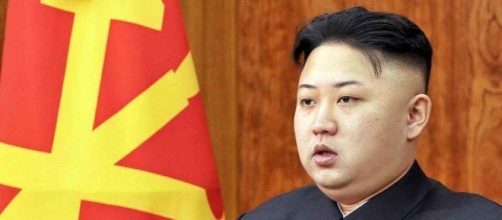The decision over whether or not to place new sanctions on North Korea, specifically its leader, dictator Kim Jong-Un, and his regime in Pyongyang, was put to a vote by the UN Security Council and they have all voted unanimously in favour of the sanctions. These new measures will ban the country from exporting textiles – which was the final thing they were still allowed to export after eight other previous sanctions – and impose a cap on all imports of crude oil into the nation.
This is the ninth time since 2006 that the UN Security Council have resorted to enforcing sanctions against North Korea for its controversial tests of missiles and nuclear arms.
All of the previous eight sanctions have failed to make a difference in Kim’s decisions, but the hopes down at the UN are that these new measures will be ninth time’s the charm, since these are the harshest sanctions yet. They’re the first ones to target sectors of the country’s economy, which is expected to have a different effect on the dictator.
US ambassadors are relieved
The US ambassadors to the UN were relieved when the vote came in unanimously in favour of their proposed sanctions, since they were worried that the Chinese would hold out on the vote. China is the only ally of North Korea, and that country’s leader, President Xi Jinping, has often attempted to reason with Kim and get him to ease off the nuclear tests by threatening sanctions, but he has always failed.
Kim’s lack of respect and disregard for Xi’s words of warning could have had some factor in the Chinese diplomats’ decision to vote in favour of the sanctions. Now that all the countries involved are on board and China’s vote has made the decision unanimous, the sanctions will have their full impact. Had China pulled out, the effects that sanctions would’ve had on North Korea as a nation would have been diminished and reduced and therefore far less effective, which is not what you want when World War III could be on the line.
Late night discussions had the sanctions watered down
The US were keen to get China behind the proposed sanctions, and so they watered down an initially much tougher proposal for the measures against the North in order to bring China around.
This came after long negotiations over the terms of the sanctions late into the night on Sunday. Luckily, those negotiations and the tough decision to dilute the sanctions resolution paid off and the compromises were made to give everyone what they want – except Kim Jong-un, whose economy has now been neutered even further than it already had by the eight previous sanctions by the UN against the country.
The North Korea sanctions as imposed by the United States government were originally going to be much tougher on the country before they watered it down to get China’s approval. In the original draft of the sanctions resolution submitted to the UN by the US, a complete oil embargo was proposed (rather than the cap on oil imports that was eventually agreed to), as well as restrictions on the naval blockade, which hoped to find support from the governments of Russia and China.
Here’s what UN ambassadors from around the world are saying
The response to the new North Korea sanctions by UN ambassadors for countries all over the world seems to be overall positive and optimistic. Francois Delattre, the French ambassador to the UN, said following the vote that the Kim Jong-un regime is “not a regional but a global threat, not a virtual but an immediate threat, not a serious but an existential threat,” highlighting the severity of the situation and then added the optimistic note that he hopes that this will “bring us towards unity...and hopefully beyond.”

